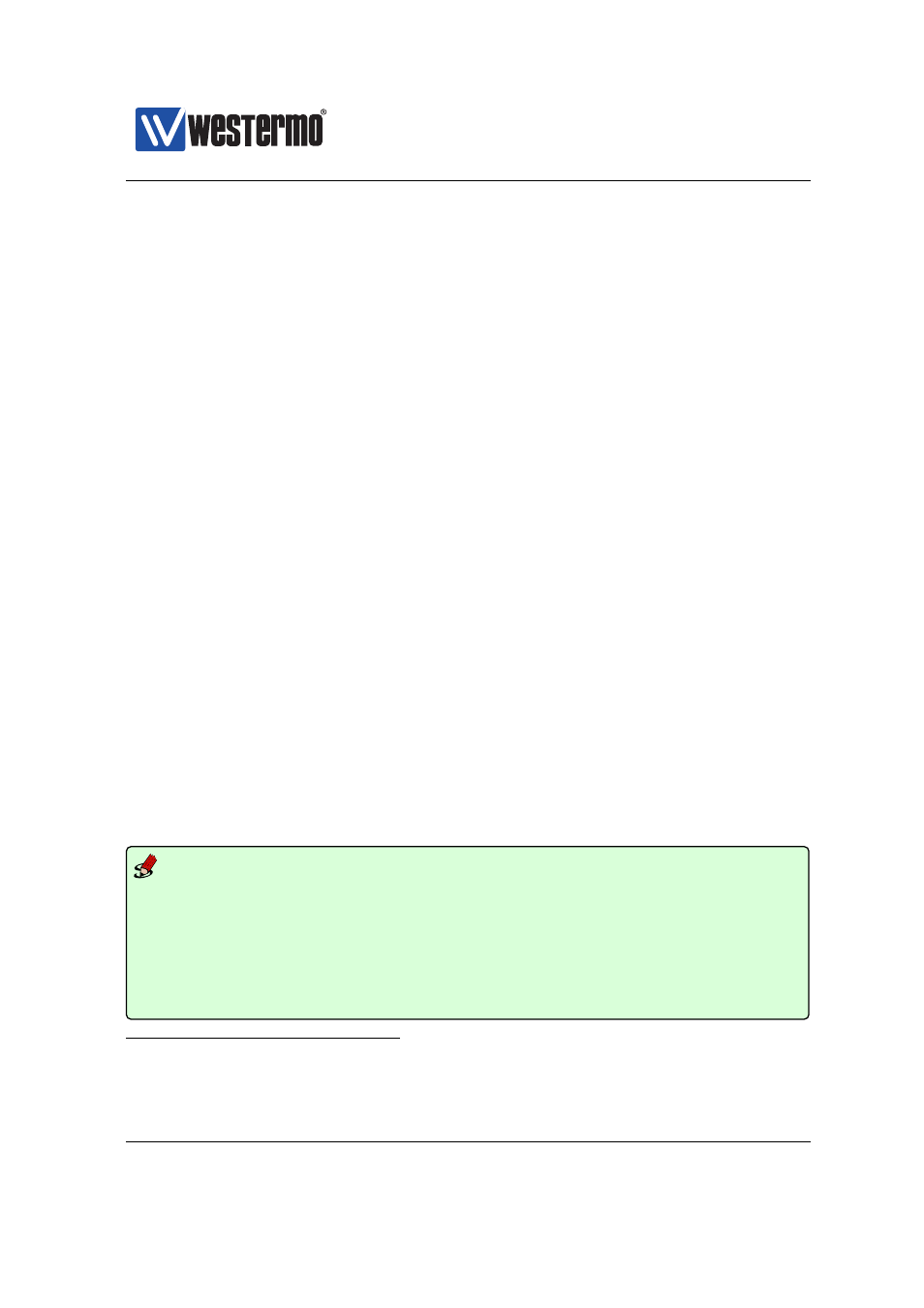Section 27.1.1.1 – Westermo RedFox Series User Manual
Page 602

Westermo OS Management Guide
Version 4.17.0-0
❼ Improved robustness: If the topology changes, perhaps because a link failed,
routers will automatically detect this and inform each other. The data traffic
will be forwarded other ways, given that a redundant path to the destination
exists.
OSPF is an example of a link-state routing protocol. In a link-state routing proto-
col, each router announces information about its own identity (router-id), its di-
rectly connected networks, and its neighbour routers. This information is flooded
throughout the OSPF domain, and each router will store the information in a local
OSPF database. Each router will gain complete knowledge about every router
and link in the whole topology, and is therefore able to compute the best path
(the least cost path) to reach every destination
For example, Router-A in
would send out OSPF messages informing other
routers about its router-id, its connected networks, i.e., Net-A and the links to-
wards routers A, B, and C, the identity of (and link to) to its neighbour routers (A,
B and C).
A major advantage of link-state routing protocols, such as OSPF, over distance
vector routing protocols, such as RIP, is the fast convergence after a topology
change. If a link goes down, information about this can be flooded rapidly to all
routers within the routing domain, and each router can then update their routing
table accordingly.
27.1.1.1
OSPF Router-ID and OSPF Networks
We use the example below to explain some essential OSPF parameter settings
(the example is for Router-A in
Example
router
ospf
router-id 10.0.11.1
network 10.0.1.0/24 area 0.0.0.0
network 10.0.2.0/24 area 0.0.0.0
network 10.0.3.0/24 area 0.0.0.0
network 10.0.11.0/24 area 0.0.0.0
end
end
1
In OSPF, a cost is associated with every link. As of WeOS v4.17.0, the default cost per link is
”10”. The link cost can be configured per interface, see
for details.
602
➞ 2015 Westermo Teleindustri AB
